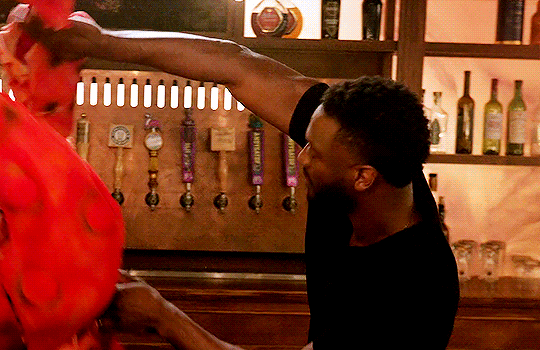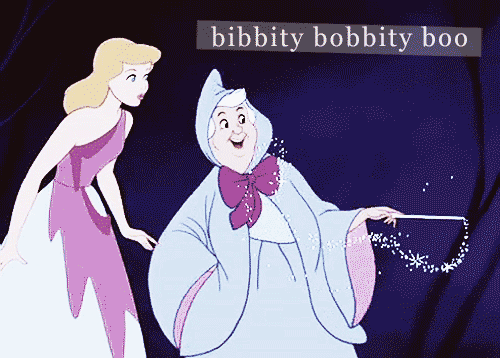|
||||||||||||||||||
|
#1 | |||
|
Fan Forum Star
              |
Emily Bett Rickards Celebration Thread #38
Celebration stuff goes here! And cheering up stuff     Celebrations January 18th : Winnie the Pooh Day January 21st : Hugging Day February 11th: International Day of Women & Girls in Science Day February 26th : Pistachio Day March 5th : Pancake Day March 16th : Panda Day April 9th: Unicorn Day May 3rd : Clem's Birthday May 30th : World Otter Day June 9th: Kate's birthday July 21st : Ice-Cream Day July 24th : Emily Bett Rickards' Birthday August 13th : Left Handers Day September 12th : Slap an Idiot I Know Day September 16th : Oxalys' Birthday October 14th : Dessert Day November 17th : David Ramsey's Birthday November 20th : Dbn's Birthday |
|||
|
|
|
#2 | |||
|
Fan Forum Legend
              |
TFTNT!
Today: Pop Goes The Weasel Day World Blood Donor Day International Bath Day National Strawberry Shortcake Day National Bourbon Day Flag Day Army's Birthday Family History Day __________________
Kind heart, fierce mind, and a brave spirit |
|||
|
|
|
#3 | |||
|
Fan Forum Star
              |
YW
  |
|||
|
|
|
#4 | |||
|
Fan Forum Legend
              |
Pop Goes the Weasel Day celebrates the popular nursery rhyme, "Pop Goes the Weasel." The rhyme's meaning and origin are debated, and there are various American and English versions of it. It was first published in 1850, in America, as a dance song titled "Pop goes the Weasel for Fun and Frolic." It was referred to as an English dance—meaning England is probably where it originated from. It is likely that an oral form of the nursery rhyme existed there long before 1850.
The dance "Pop goes the Weasel" was popular in England in the 1850s. Done on stage and in dance-halls, it didn't have lyrics beyond the shouting out of "Pop goes the weasel." More lyrics were soon added, but they weren't solidified in Britain and took on various forms in America as well. The most basic and common lyrics in England were as follows: Half a pound of tuppeny rice Half a pound of treacle That's the way the money goes Pop! goes the weasel Every night when I go out The monkey's on the table Take a stick and knock it off Pop! goes the weasel A common American verse, which was first printed in 1914, is as follows: All around the mulberry bush The monkey chased the weasel The monkey stopped to pull up his sock, (or The monkey stopped to scratch his nose, or The monkey fell down and oh what a sound) Pop! goes the weasel One theory takes the lyrics literally, saying the song is about weasels popping their heads up—something they do naturally when they are disturbed. Weasel may also be a play on the word "whistle." Another theory says that the song is about pawning a suit, where "pop" is the word for pawn, and "weasel" for suit. There are many other theories, and it is even possible that at the height of the dance craze in the 1850s, people didn't know what it meant. Shortly after the dance gained popularity, by at least 1856, the phrase "Pop goes the weasel" began taking on its own meaning apart from the song. It came to indicate that something had happened "just like that." By the late nineteenth century, in Britain, the rhyme started being used to play a game that was similar to musical chairs.    In the United States, Flag Day is celebrated on June 14. It commemorates the adoption of the flag of the United States on June 14, 1777, by resolution of the Second Continental Congress. The U.S. Army was founded on 14 June 1775, when the Continental Congress authorized enlistment of expert riflemen to serve the United Colonies for one year.    __________________
Kind heart, fierce mind, and a brave spirit |
|||
|
|
|
#5 | |||
|
Fan Forum Star
              |
Quote:
Thank you  awww otter bath   |
|||
|
|
|
#6 | |||
|
Fan Forum Legend
              |
Today:
Nature Photography Day National Lobster Day National Smile Power Day National Electricity Day National Kiss a Wookiee Day Magna Carta Day Fly a Kite Day Global Wind Day __________________
Kind heart, fierce mind, and a brave spirit |
|||
|
|
|
#7 | |||
|
Fan Forum Star
              |
there's so much wind here today!
 |
|||
|
|
|
#8 | |||
|
Fan Forum Legend
              |
         National Electricity Day takes place on the anniversary of the date in 1752 when Benjamin Franklin flew a kite in a thunderstorm, with the intent of proving that lightning was caused by a discharge of electricity (some sources say he flew his kite on June 10). His experiment led to further understanding of positive and negative charges, the proving that lightning was an electrical discharge, and to the invention of the lightning rod—which provided a safe way to discharge electricity and a way to prevent fires. Lightning rods are still used today to protect buildings, ships, and people. Franklin began his experiments with electricity in 1747 and began hypothesizing about the connection between electricity and lightning two years later. He set out to prove his hypothesis; his idea was to erect iron rods into storm clouds to attract electricity. He believed he would need to be on high ground for his experiment to work, but he was in Philadelphia, a city that is quite flat. At first, he was waiting for the steeple to be finished at Christ Church, believing that he could use it for his experiment. Franklin wrote about his iron rods idea to Peter Collinson, a member of the Royal Society of London, but the group did not see the importance of the idea. Soon afterward, though, his idea did attract the attention of French scientists Delor and Dalibard. Shortly before Franklin did his own experimenting, unbeknownst to him, they successfully completed his iron rod experiment, and called it the "Philadelphia experiment." Franklin decided to test his theory by flying a kite instead of waiting for the steeple to be finished on the church. Accompanied by his son William, he built a kite with cedarwood and a silk handkerchief and attached a foot of wire to the top of it to act as a conductor. At the bottom of the kite he attached a string, and at the point the string was held he placed a silk ribbon and a metal key. A metal wire was connected to the key and went to a Leyden jar. As Franklin flew his kite in a lightning storm, he kept dry by standing in a barn. The kite was not struck, but the conductor gained negative charges. They went through the kite, string, key, and to the Leyden jar. This showed that a conductor could be used to channel electricity into the ground. At one point, he moved his hand close to the key and gained a shock because of the positive charge of his body. Franklin later was credited with coming up with various electricity-related terms. Magna Carta was issued in June 1215 and was the first document to put into writing the principle that the king and his government was not above the law. It sought to prevent the king from exploiting his power, and placed limits of royal authority by establishing law as a power in itself.   __________________
Kind heart, fierce mind, and a brave spirit |
|||
|
|
|
#9 | |||
|
Fan Forum Star
              |
the lobsters
 lol: thanks lol: thanks  |
|||
|
|
|
#10 | |||
|
Fan Forum Legend
              |
Today:
World Sea Turtle Day No Orange Clothes Day Wish Fulfillment Day National Fudge Day Fresh Veggies Day National Vinegar Day Bloomsday National Flip Flop Day __________________
Kind heart, fierce mind, and a brave spirit |
|||
|
|
|
#11 | |||
|
Fan Forum Star
              |
Sea turtles
     |
|||
|
|
|
#12 | |||
|
Fan Forum Legend
              |
   No Orange Clothes Day commemorates the day in 1784 when the wearing of orange was banned in the Netherlands, a country often informally called Holland. Such a thing seems unconscionable today, as orange is now seen as the unofficial color of the Netherlands, and is worn and displayed everywhere. The color has a long and varied history in the country, dating back to the sixteenth century. Why did orange become associated with the Netherlands? Orange is the color of the Dutch royal family, and its association with them goes back to William of Nassau, who is also known as William the Silent or William of Orange. William became the Prince of Orange in 1544, at the age of eleven, when the principality of Orange—which had previously been a French principality—came under his control. In 1568, he became the leader of the Dutch revolt against the Spanish, which led to the creation of the Dutch Republic. The original flag was orange, blue, and white. Following William's death, it was hard for his successors to hold the Republic together, and most of the power was held in the provincial Estates instead. The orange stripe in the flag was replaced with red. Instead of being a color representing the whole country, orange came to represent the color of the Stadholder, a term for the magistrate. This became even more the case, as the magistrates began to act more like monarchs. The magistrates began losing power, but some people began giving them support and started wearing orange bows and ribbons. It was because of this that the Estates of Holland banned the wearing of orange on June 15, 1784. But, the Orange ideology began growing internationally and was embraced by groups such as the Protestants in Ireland. In 1813, the Orange monarchy was established in the Netherlands. Its ideology was no longer such an integral part of it, making it more palatable to ordinary citizens. The color orange was no longer illegal and began to have a broader appeal, although it did not completely unify the nation. Reforms in 1848 lessened the power of the Princes of Orange, but when Queen Wilhelmina came to power in 1890, a lasting bond between the monarchy of the House of Orange and the people was formed. The color orange became celebrated widely. Some wanted the color added back to the Dutch flag, but the flag was officially proclaimed to be red, white, and blue in 1937. Orange continued to gain popularity on its own, being used in flags and banners—even outnumbering the official flag at sporting events and other celebrations. Today, orange is a symbol of the whole Dutch nation, not just of the monarchy. It is a symbol of pride in being Dutch, and still draws on its history, being a symbol of resistance and sovereignty, just as it was during the time of William and the formation of the Republic. The wearing of orange in mass is known as "Oranjegekte," meaning "Orange craze," or "Oranjekoorts," meaning "Orange fever." It has been worn by the Dutch to World Cup events since about 1934, and most sports teams in the Netherlands use the color. Not only do the Dutch commonly wear orange in all forms of clothing, the color also covers their houses and shops, and cars and streets. Even some airplanes are painted orange. Orange banners are attached to the Dutch flag on royal birthdays, and the national holiday of Koningsdag, or King's Day, is held each April and is one of the finest displays of Oranjegekte.      Bloomsday is a celebration of Ulysses and its author James Joyce. It is celebrated by academics and diehard fans, as well as by many who have never read nor finished the dense, convoluted, and oftentimes bewildering novel, but who wish to celebrate the book and its author anyway because they recognize the book's importance. James Joyce is known for his complex writing, stream-of-consciousness prose, and use of content that some view as explicit. Ulysses is known as one of the best novels of all time. The whole book takes place on June 16, 1904, when its protagonist, Leopold Bloom, explores the pubs, churches, streets, bridges, and shops of Dublin, Ireland. It is a modern-day version of Homer's epic, the Odyssey, where Bloom, his wife Molly, and Stephen Dedalus represent Ulysses, Penelope, and Telemachus. One of Joyce's biographers, Richard Ellmann, claimed that Joyce picked June 4 as the date of the book's events because it was the anniversary of the day that he either met or first went walking with his lover, and eventual wife, Nora. Although, other academics disagree on the significance of the date. Ulysses was published in Paris, in 1922, but was banned in the United States and the United Kingdom at the time. It was also banned by Stalin in Russia. Various legal battles brought the book to a wider attention, and in December 1933, the court decision of United States v. One Book Called Ulysses ruled that the book was art, not filth, and that it could be published in the United States. The United Kingdom allowed its publication in 1936. Upon its initial publication, it received both praise and criticism, and became known as being a difficult book to read. It uses many styles and techniques throughout, and readers must think beyond the immediate plot and examine why the styles change. The word "Bloomsday" first appeared in 1924, in a letter written by Joyce. In 1929, booksellers Sylvia Beach and Adrienne Monnier put together a luncheon at a restaurant outside of Versailles, to honor the 25th anniversary of the publication of the book, and to celebrate the publication of a new French translation. It was attended by Joyce and about thirty others, and took place on June 27, is seen as the first Bloomsday celebration. Bloomsday wasn't celebrated in Dublin until 1954 when Irish writers Flann O'Brien and John Ryan held a gathering at Martello Tower—the setting in the first episode of the book, which today is called James Joyce Tower and houses a museum dedicated to Joyce. Afterward, they took a carriage ride through Dublin, not unlike the one that is taken in episode six of the book. The city itself began embracing Joyce in 1982, during the centennial year of his birth. Now the day is celebrated second only to St. Patrick's Day in the city. Many retrace Bloom's footsteps of the day as much as they can, and Davy Byrne's Pub is a popular stop. Many of the locations of the book can no longer be stopped at, though, as much has changed since 1904. For example, Bloom's home at 7 Eccles Street no longer stands. Today, celebrations take place around the world. Academic conferences, readings and role-playings of the book, and James Joyce look-alike contests are all common. The day is celebrated in at least sixty countries. Events and celebrations take place in many European and North American cities, but in other areas as well. Notable cities with celebrations include Dublin, New York, Philadelphia, Toronto, Tokyo, Beijing, and Buenos Aires. The James Joyce Society of New York City was founded in 1947, at the now-gone Gotham Book Mart, and yearly meetings were held on the day. Annual readings also take place at Symphony Space at their Bloomsday on Broadway event. James Joyce was born in Dublin, on February 2, 1882, and went on to become one of the most admired authors of the twentieth century. He grew up reading and was fond of Dante, Aquinas, and Aristotle. After earning a Bachelor of Arts degree from University College Dublin, he moved to Paris. But he soon returned to Dublin, in 1903, when his mother became sick—she died soon afterward. He met Nora Barnacle, who became his longtime lover and then wife. The two soon left Dublin, and made various moves over the years, while also having two children. Joyce worked as a teacher to support his family, while also writing. Before the publishing of Ulysses, Joyce was rather unknown. He published a collection of fifteen short stories called Dubliners in 1914, and A Portrait of the Artist as a Young Man two years later. After reading the latter, Ezra Pound helped push Joyce's career. He helped Joyce gain patronage, including from Harriet Shaw Weaver. This gave him the opportunity to take time off from teaching so that he could write. Following Ulysses, Joyce published Finnegan's Wake in 1939, which many saw as being even a harder read than its predecessor. Joyce appeared on the cover of Time magazine the same year. Joyce and his family had been living in Paris but moved to southern France before the Nazis invaded the city. The family then went to Zurich, Switzerland, where they had once lived before. Joyce had been struggling with health issues for a while. In particular, he had problems with his eyes and vision, enough so that he had had surgeries and was nearly blind at some points in time. While in Zurich, he had an intestinal operation from which he did not recover. He died on January 13, 1941, at the age of 59. His legacy lives on in his books, and in the celebration of Bloomsday. __________________
Kind heart, fierce mind, and a brave spirit |
|||
|
|
|
#13 | |||
|
Fan Forum Star
              |
Thank you
 Did you read Ulysses ? |
|||
|
|
|
#14 | |||
|
Fan Forum Legend
              |
__________________
Attended Katie's School of Observation! I forgot something...that I forgot Visit us at the Paul Wesley board & Emily Bett Rickards board |
|||
|
|
|
#15 | |||
|
Fan Forum Legend
              |
Today:
Dog Dad's Day World Juggling Day National Apple Strudel Day National Eat Your Vegetables Day Global Garbage Man Day __________________
Kind heart, fierce mind, and a brave spirit |
|||
|
|
  |
| Bookmarks |
| Tags |
| emily bett rickards |
| Forum Affiliates | |
| Thread Tools | |
|
|